Abstract
Chemotherapeutic trials in urinary schistosomiasis are described and discussed. Their design and conduct were based on recommended statistical techniques, now generally accepted as the most appropriate approach to the assessment of antischistosomal drugs.
Randomization produced comparable host groups in whom multiple parasitic infection and radiological urinary tract damage were common. Treatment was with one of three antimonial compounds given at equivalent metallic dosage daily.
Antimony sodium tartrate (AST) and antimony dimercaptosuccinate (TWSb) were equally efficient curatively but both produced many side-effects. Sodium antimonylgluconate (TSAG) was four-fifths as effective but tolerance was superior. Estimations of urinary antimony excretion showed that tissue retention of the metal was related to cure-rates and side-effects. It was concluded that none of the drugs were suitable for mass chemotherapy.
More new non-toxic schistosomicides are urgently needed and for their assessment, the setting-up of multicentre trials, following international agreement on technical methods, is suggested.
Full text
PDF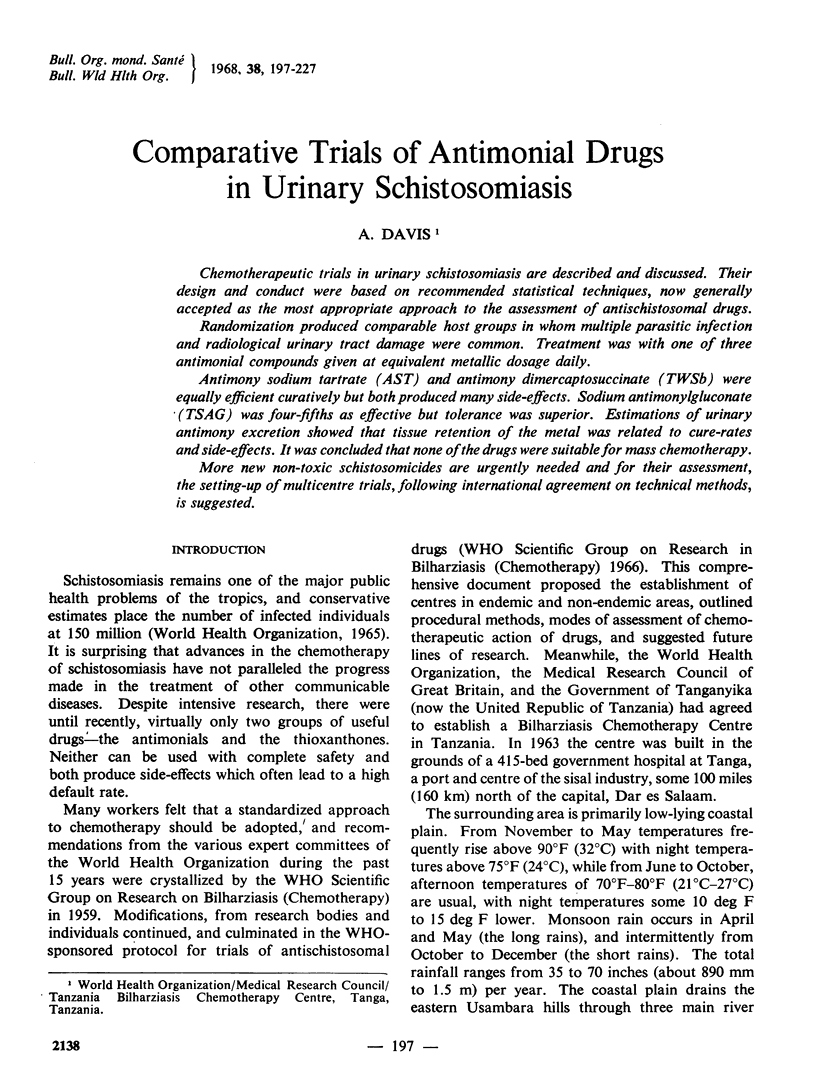
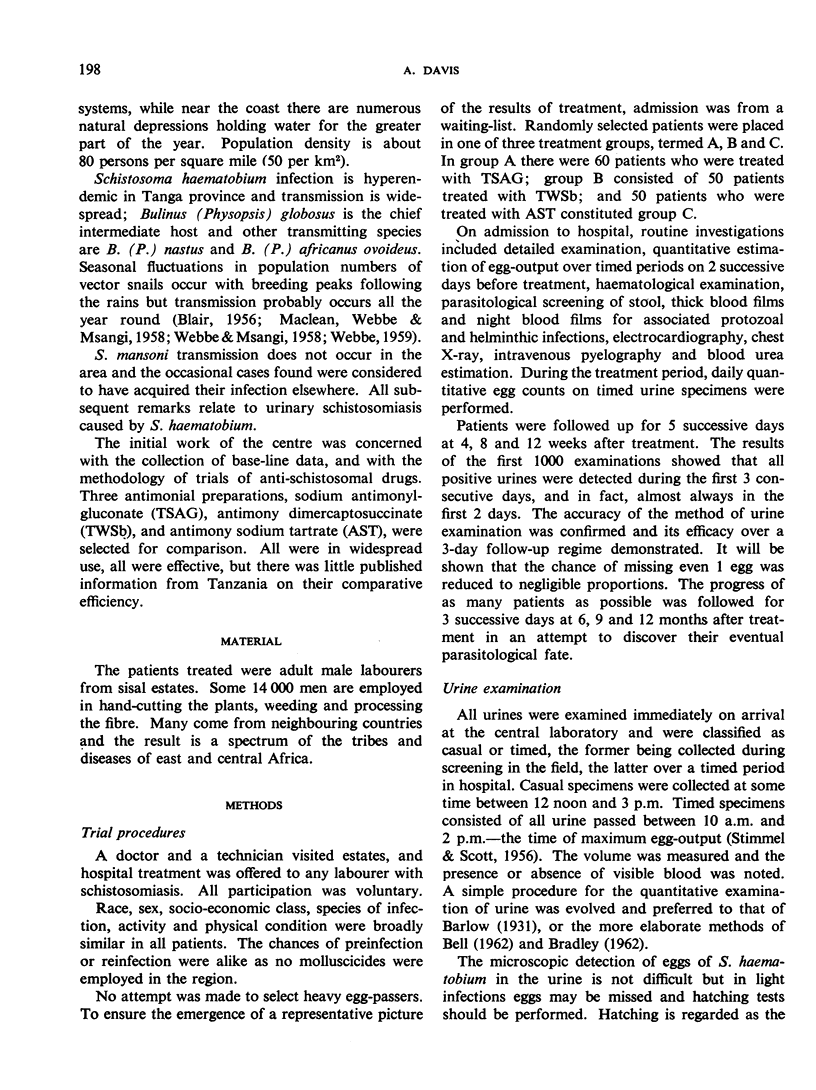
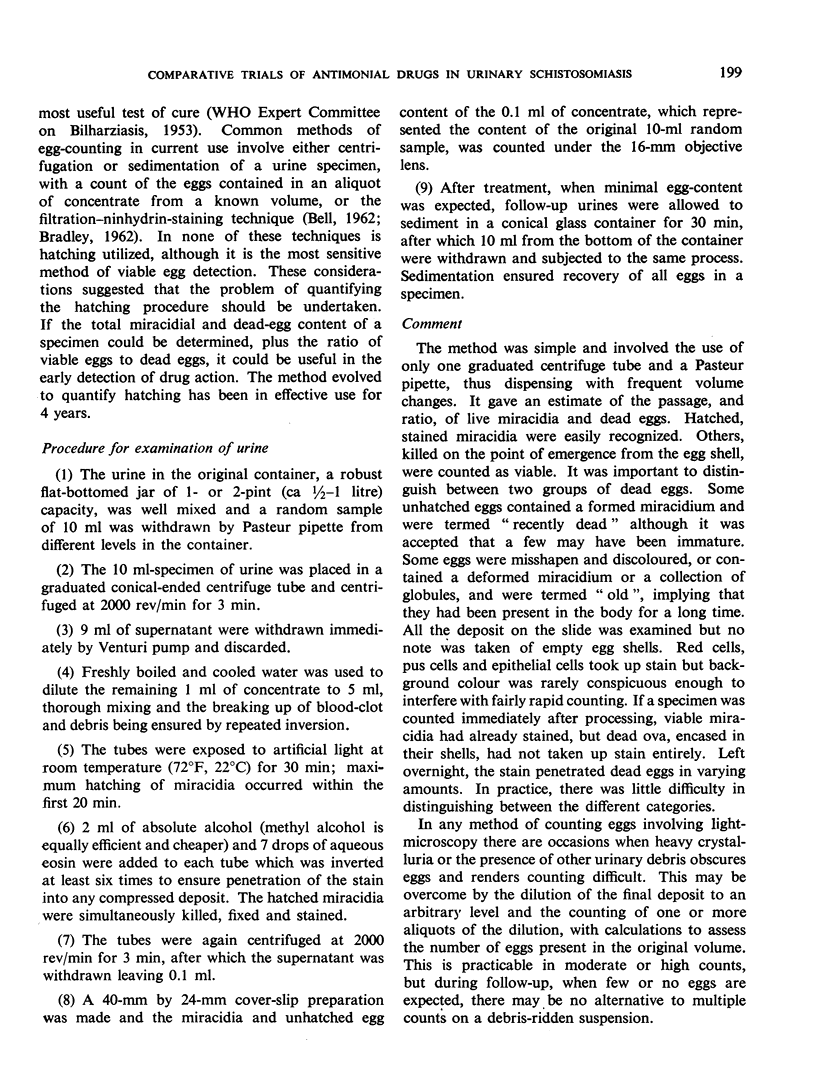
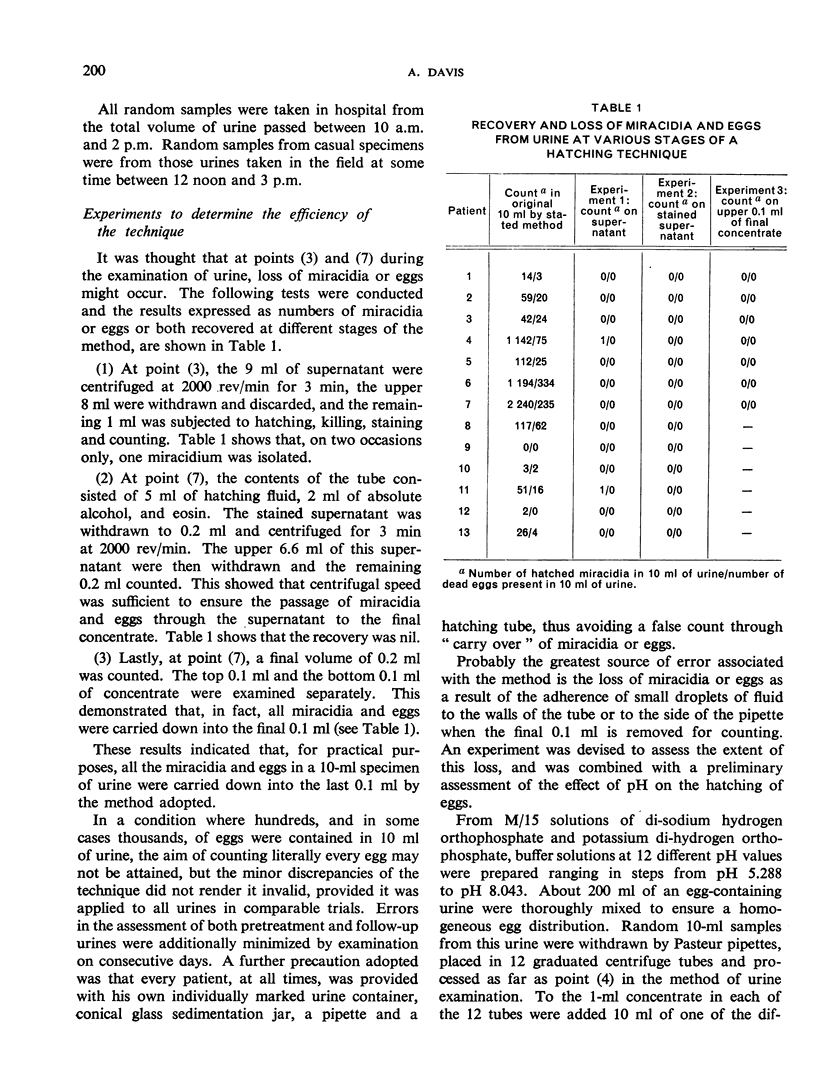
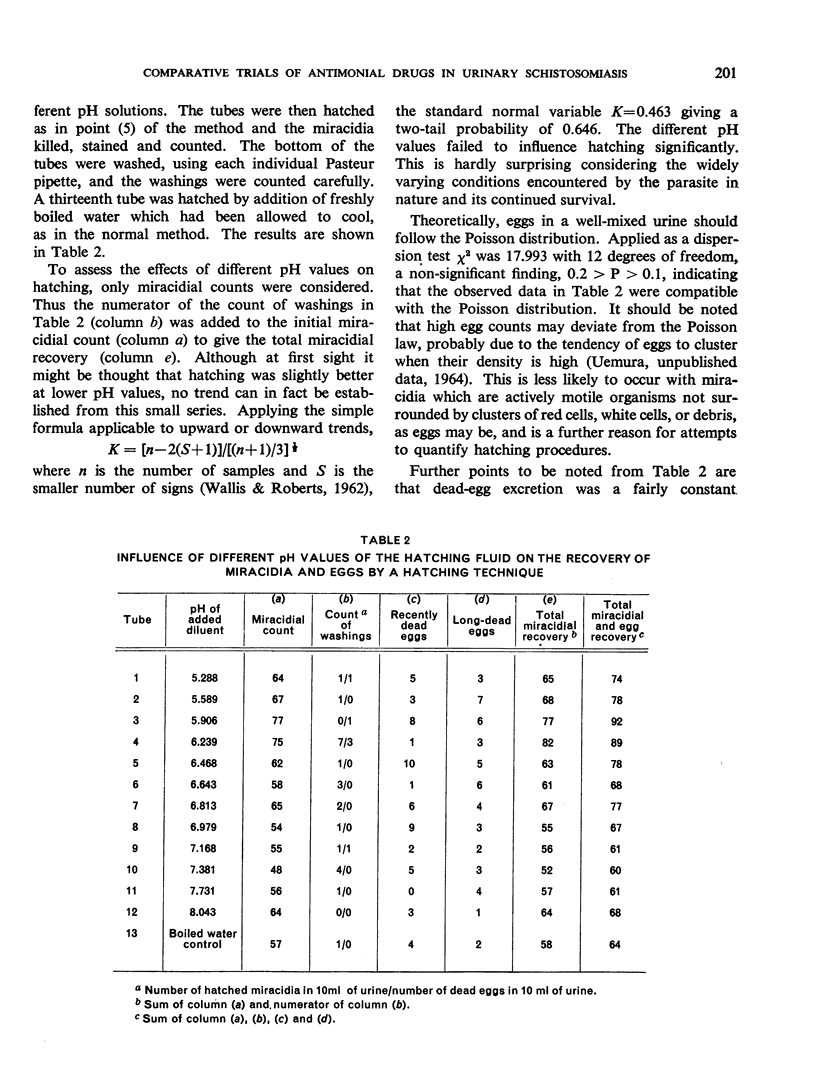
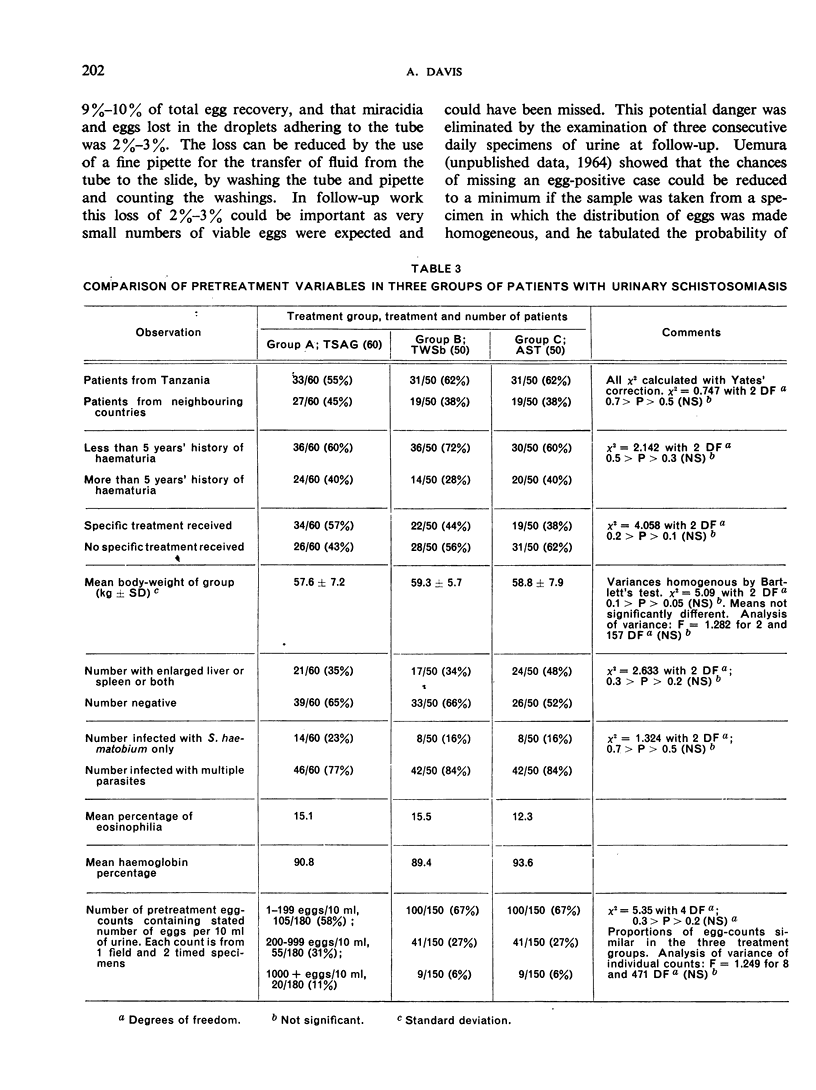
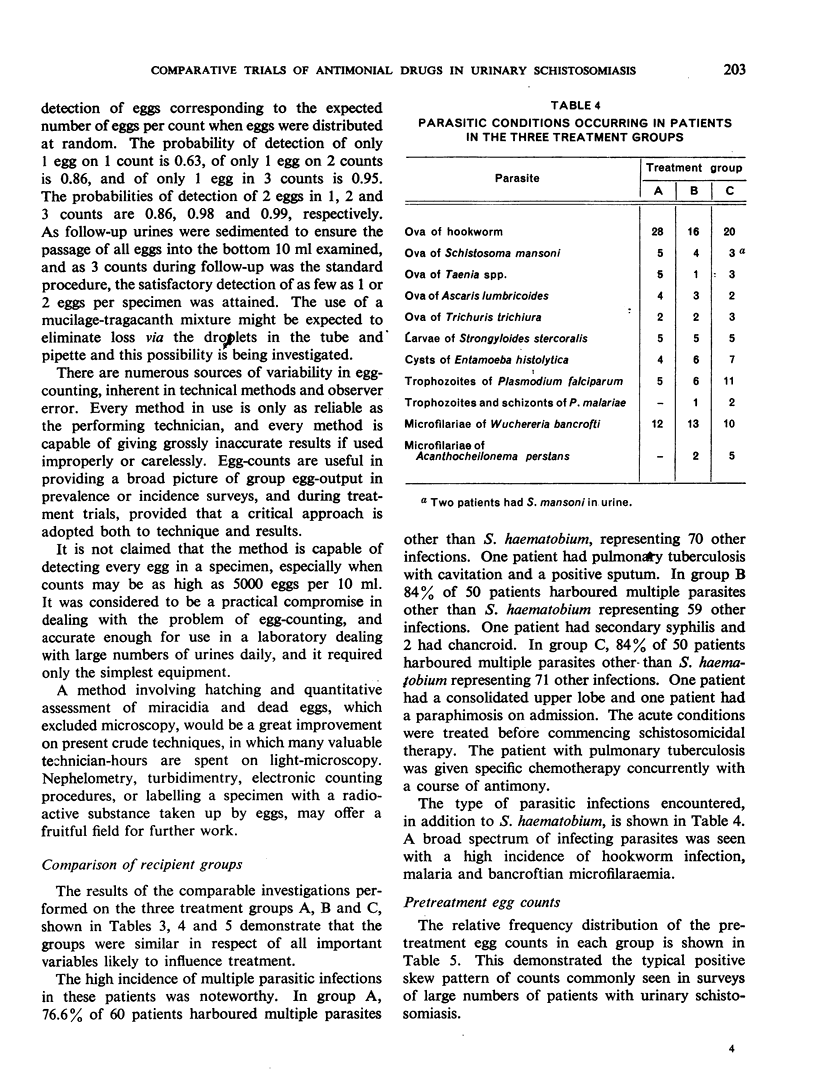
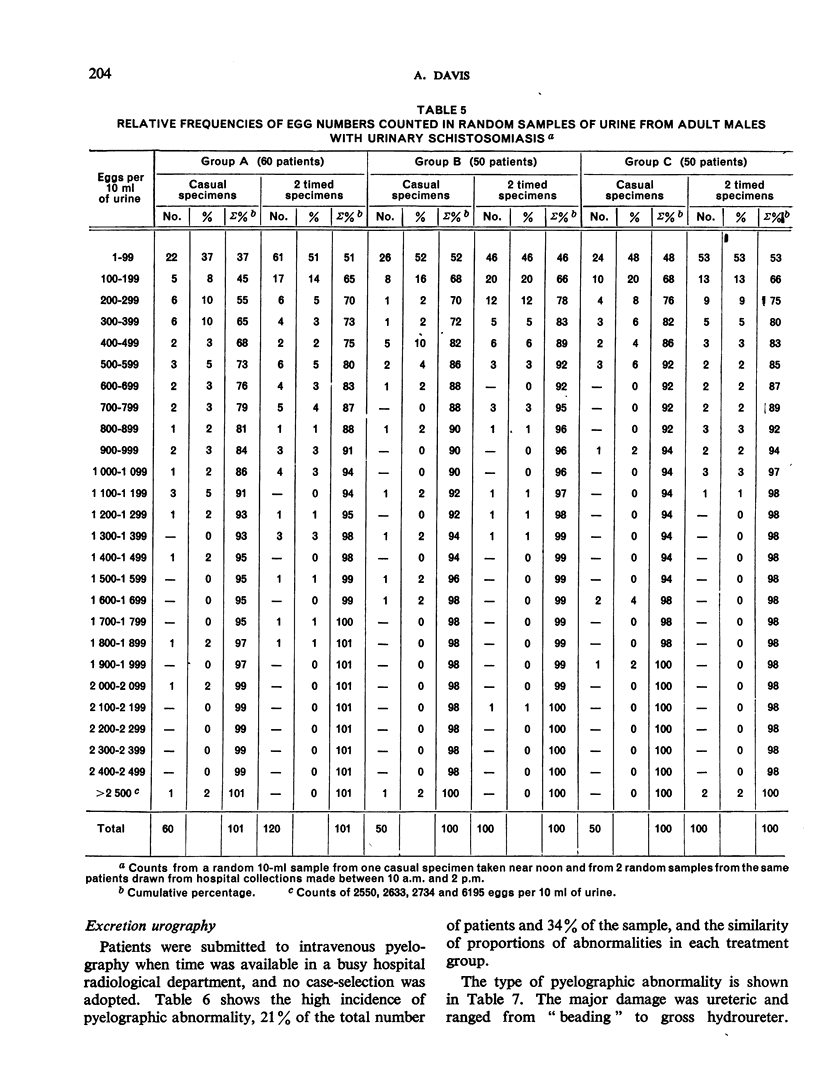
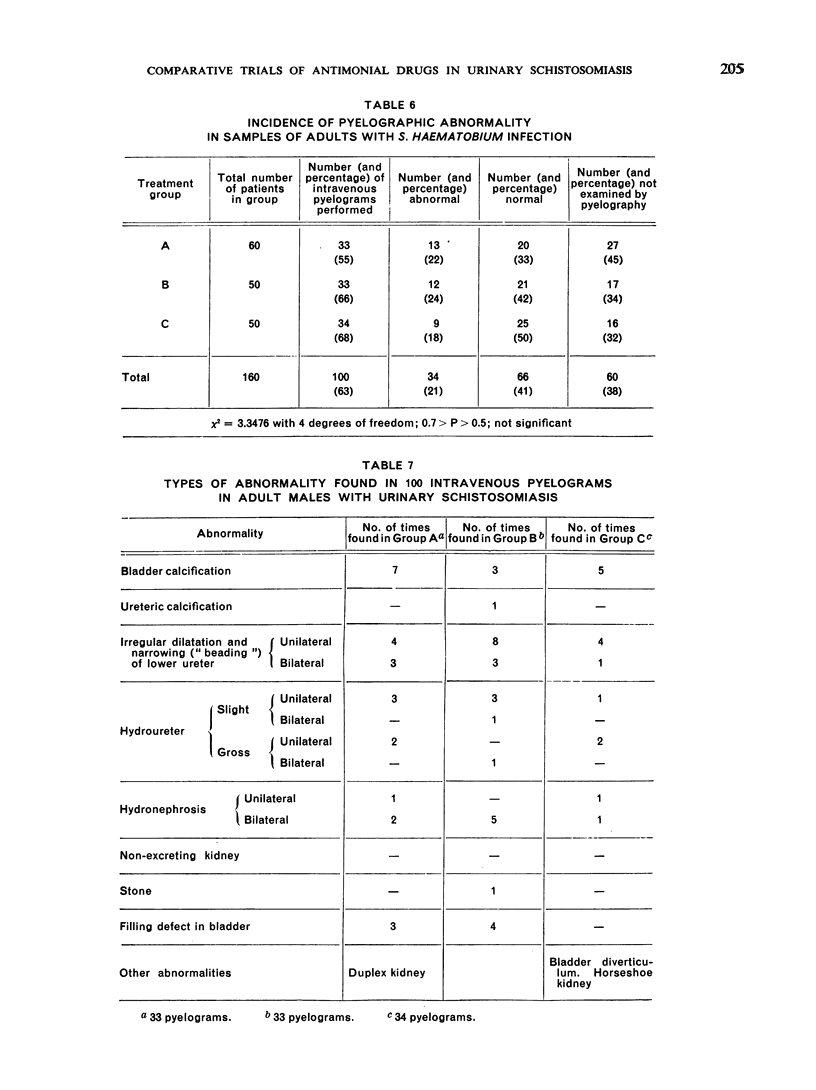
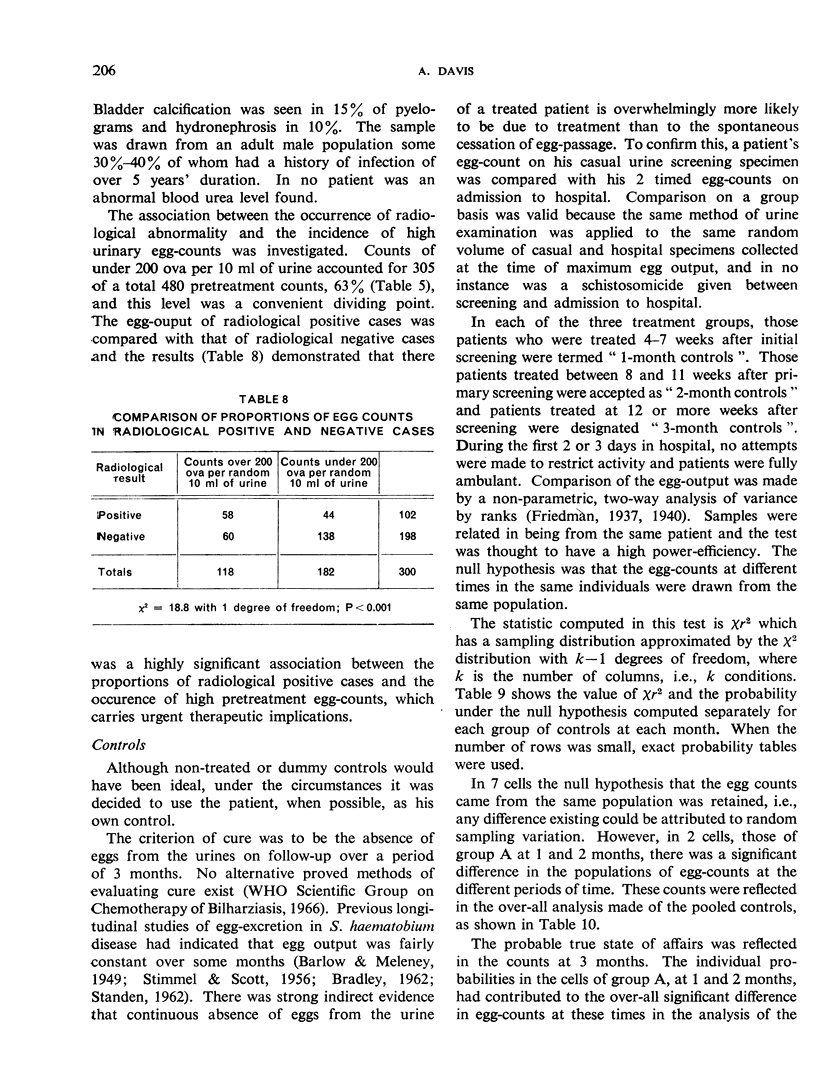

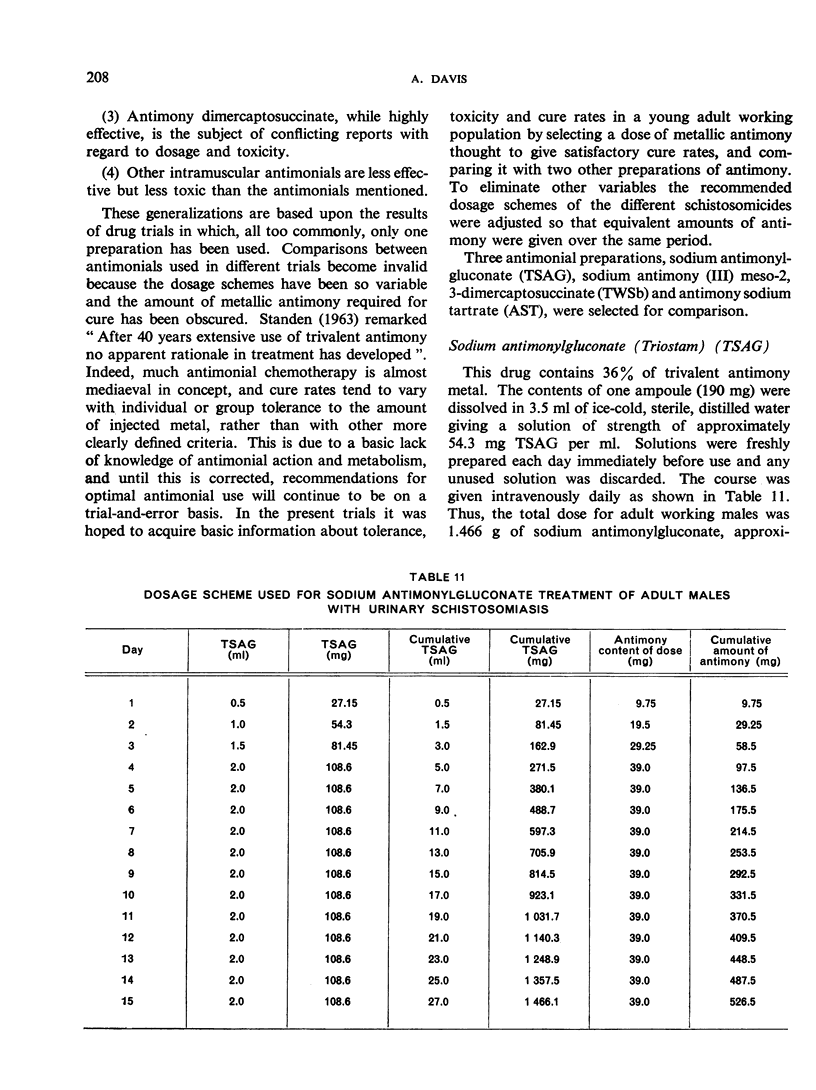
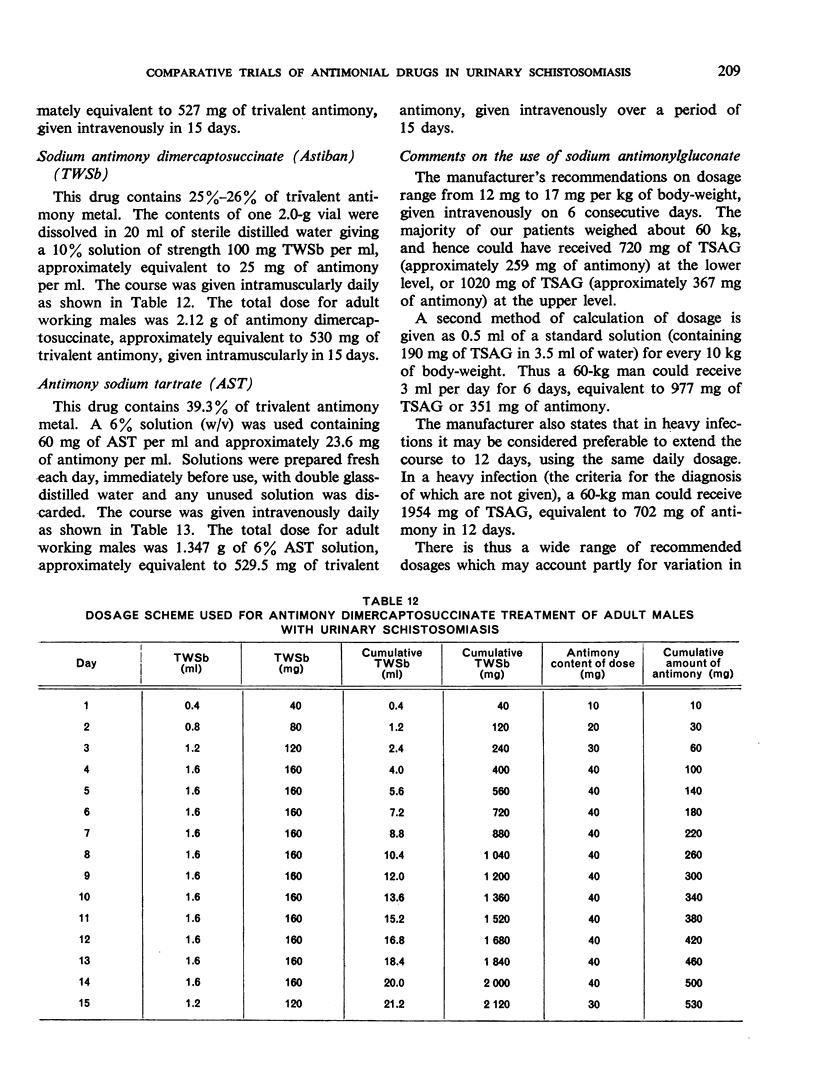
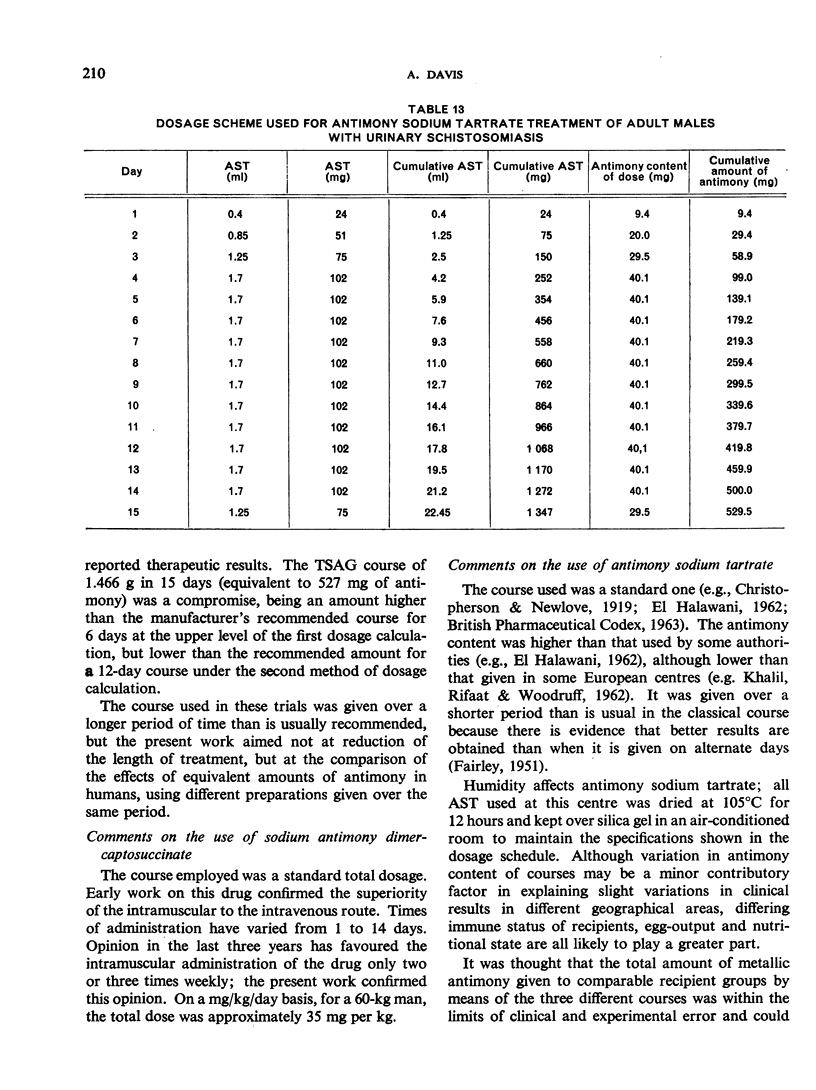
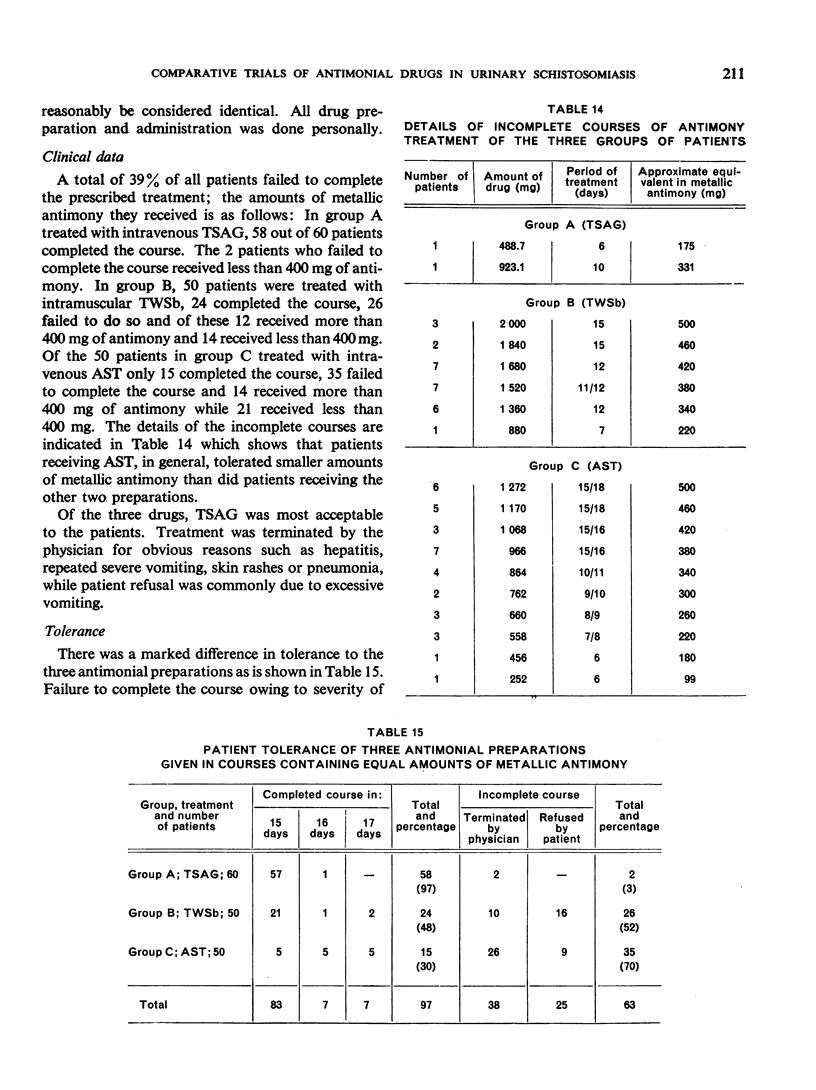
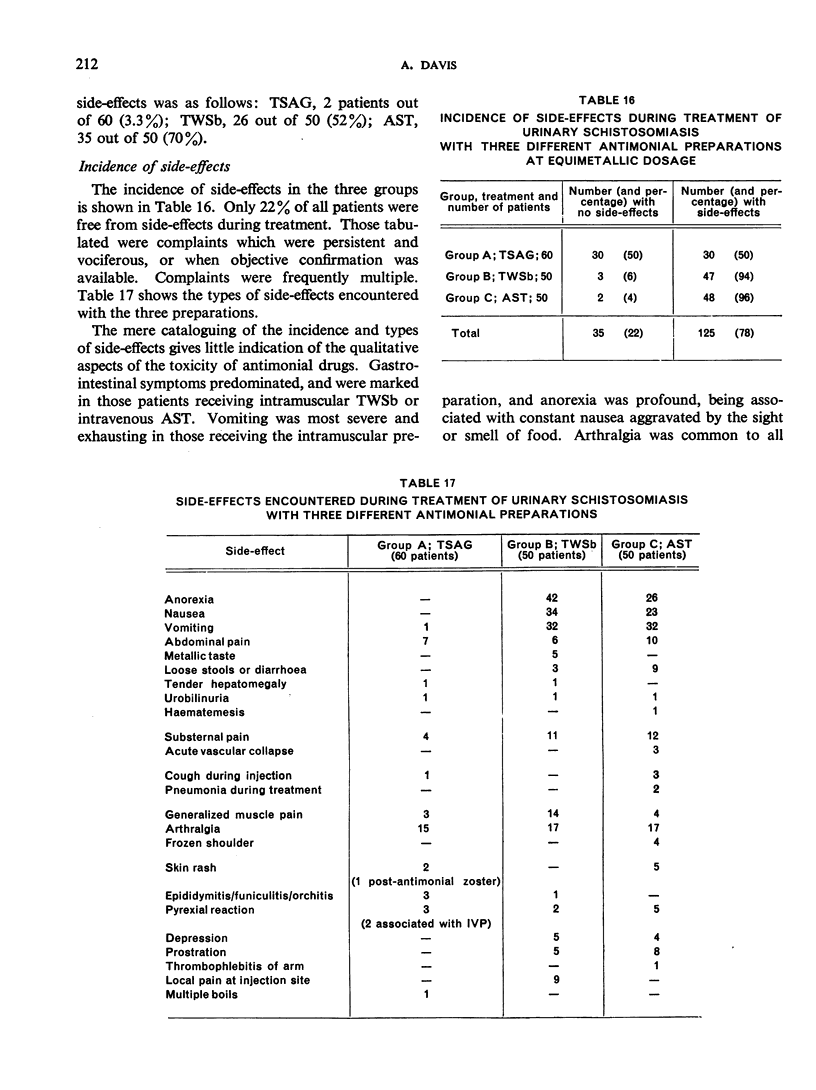
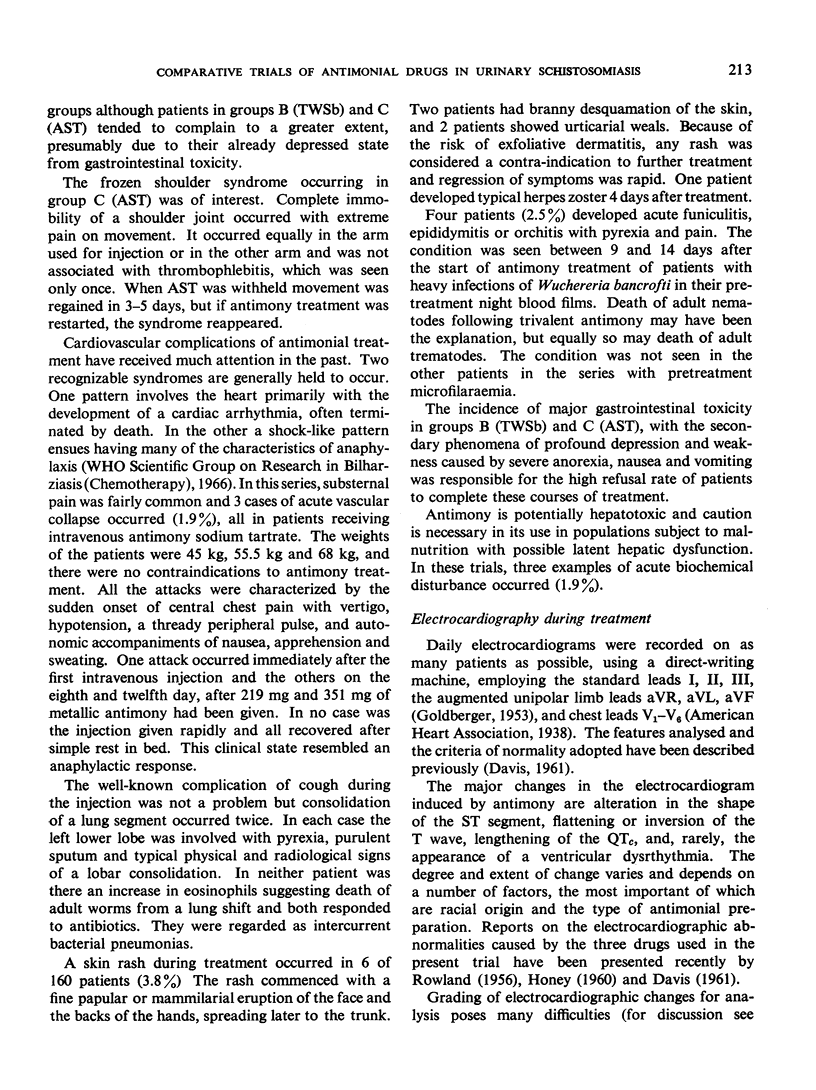
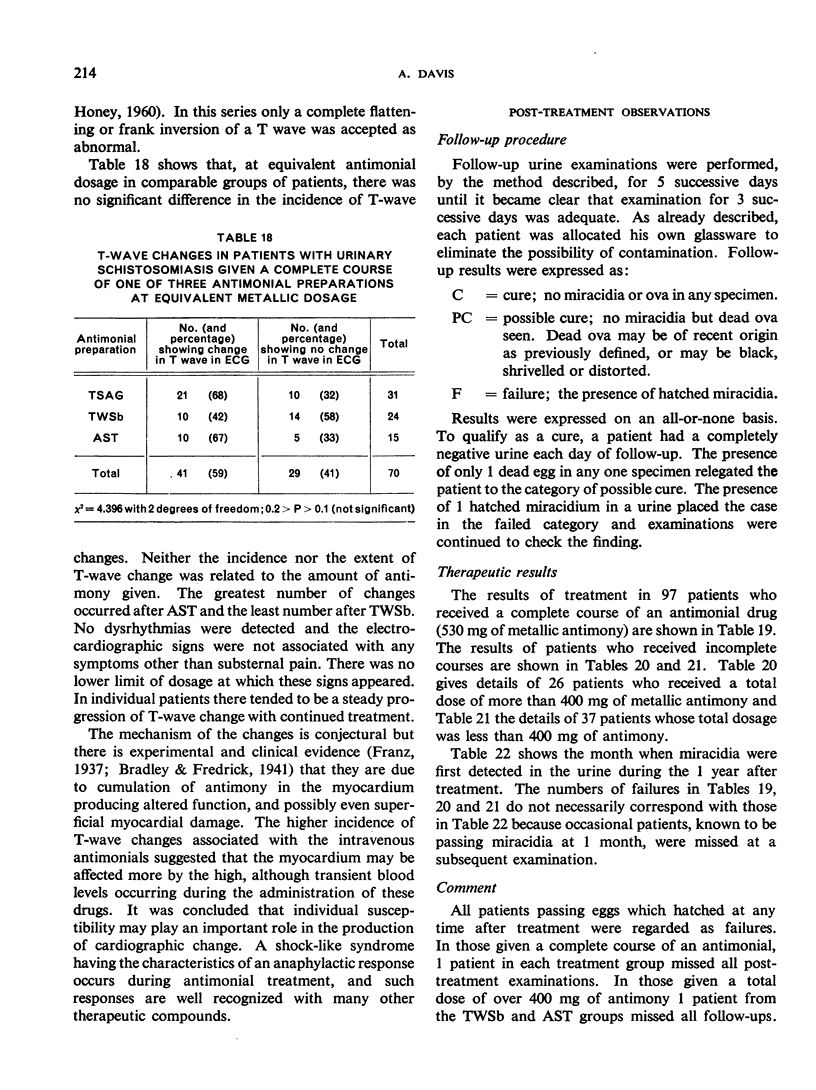
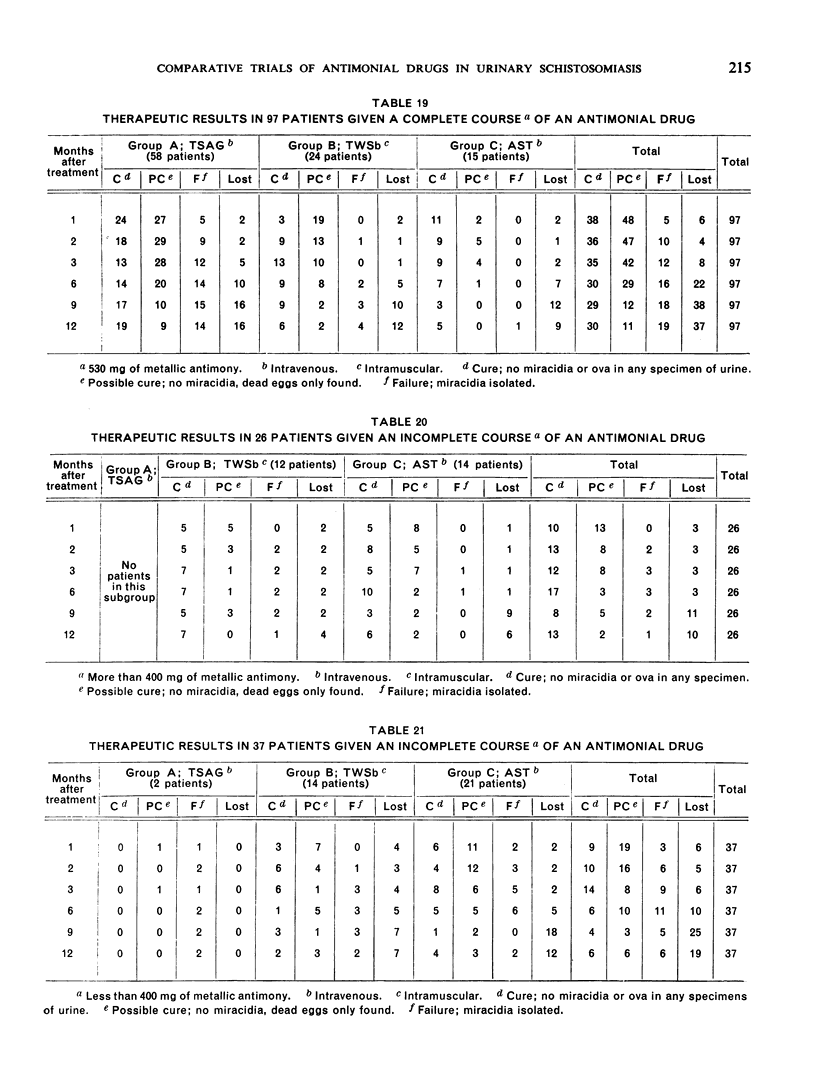
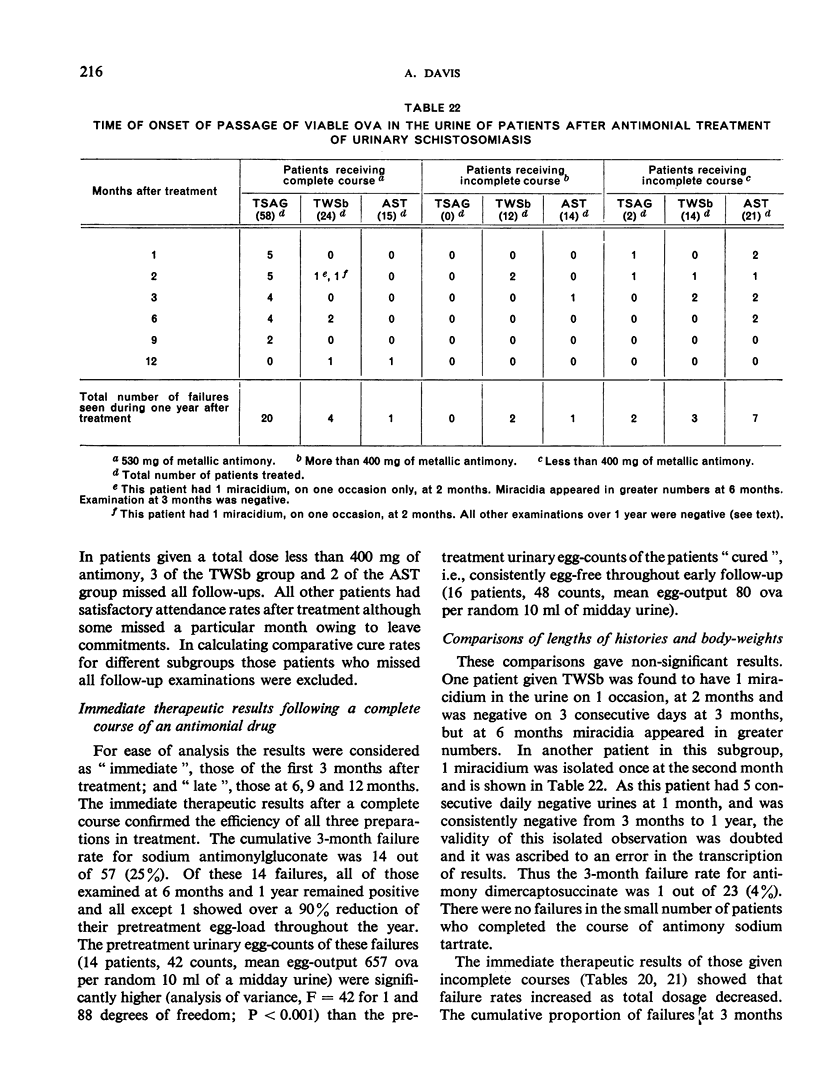
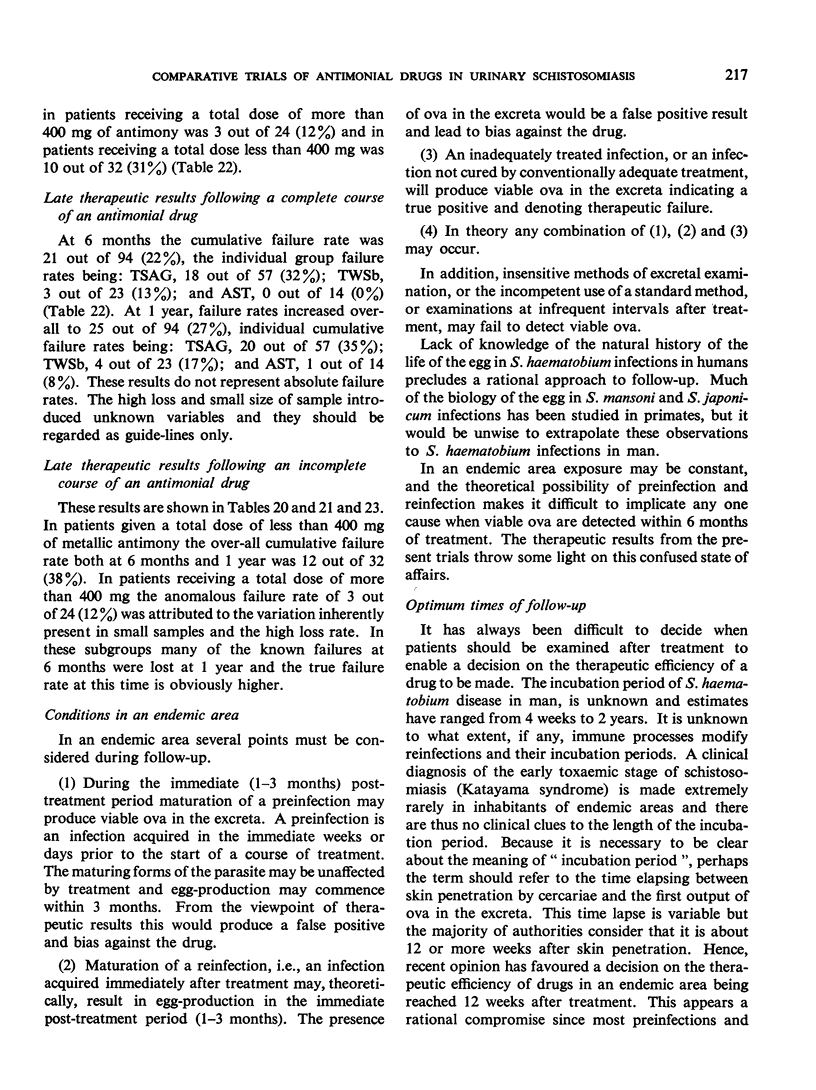
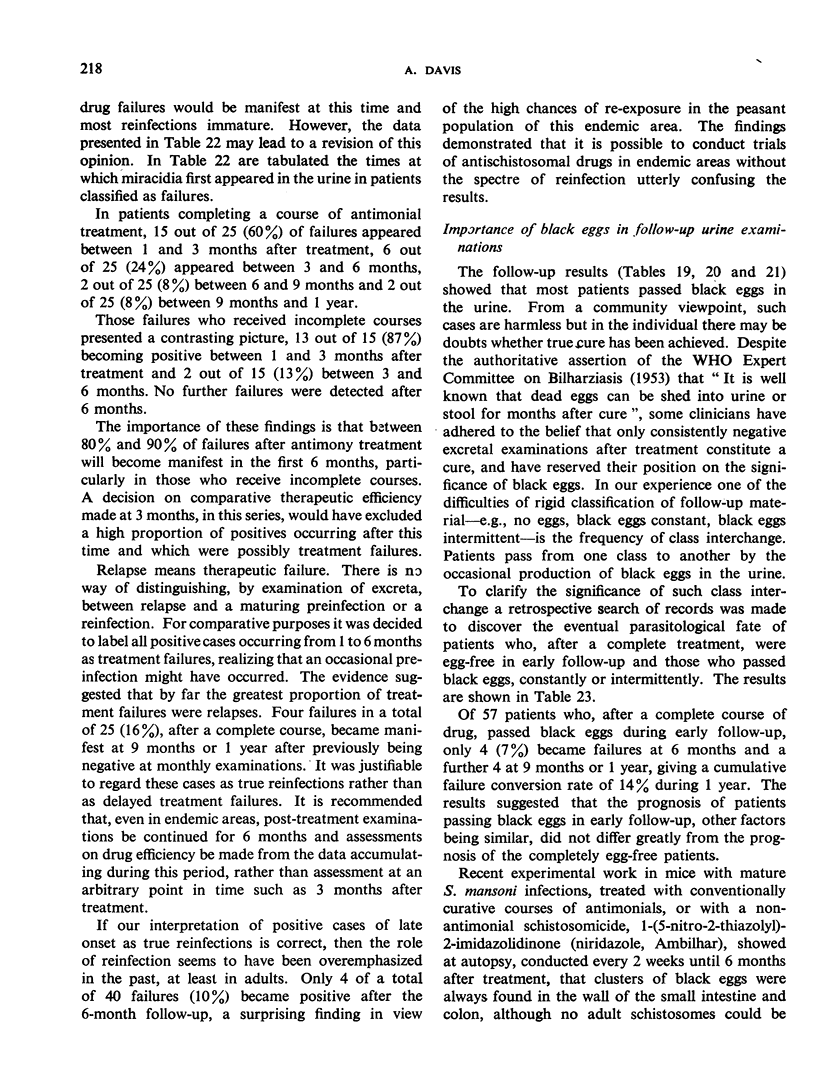
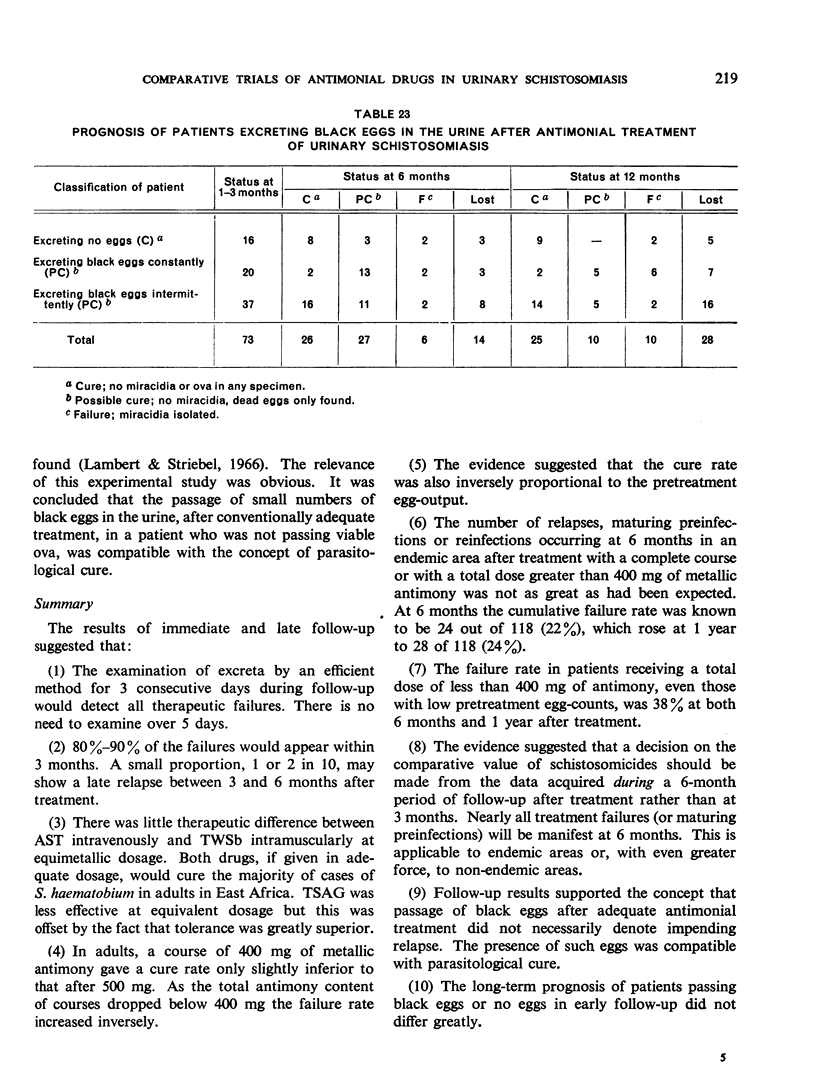
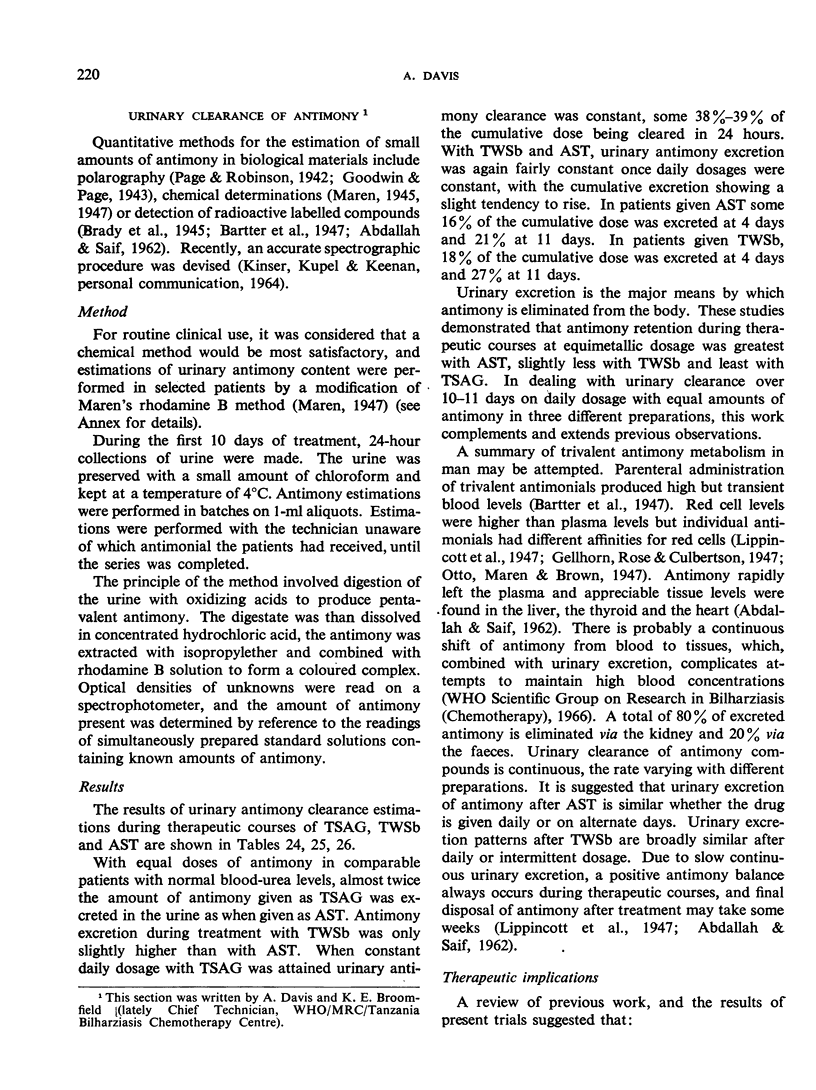
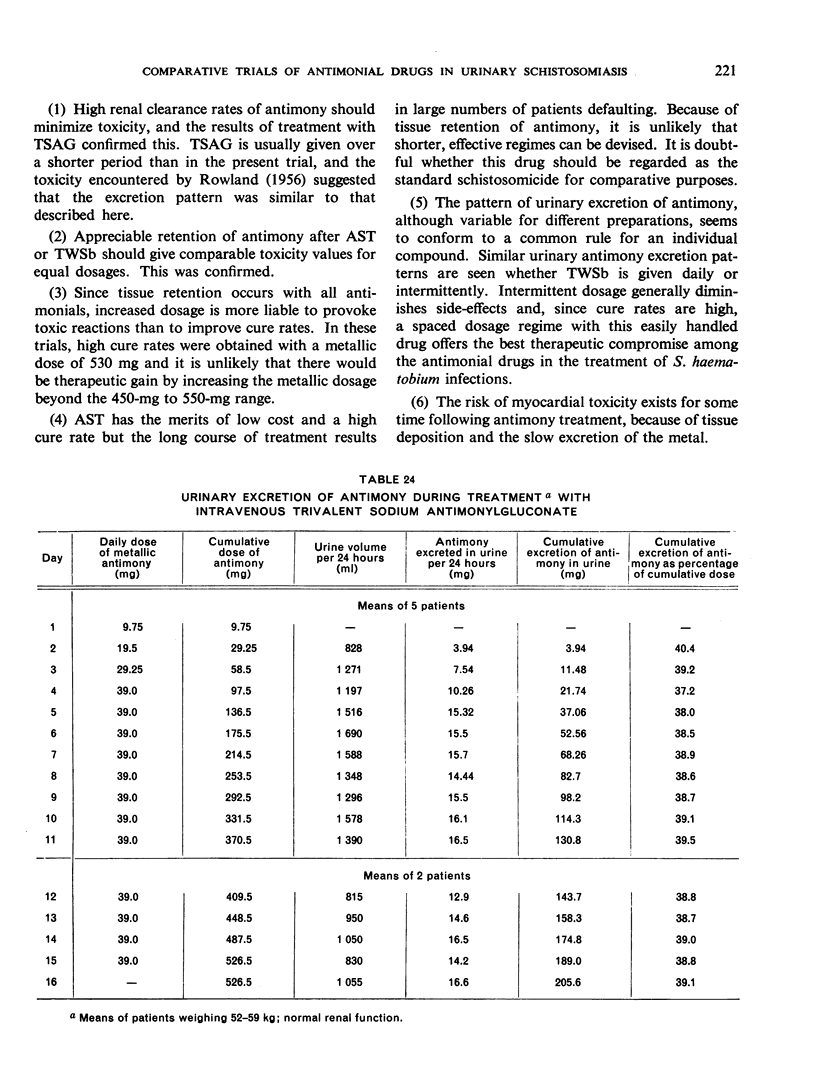
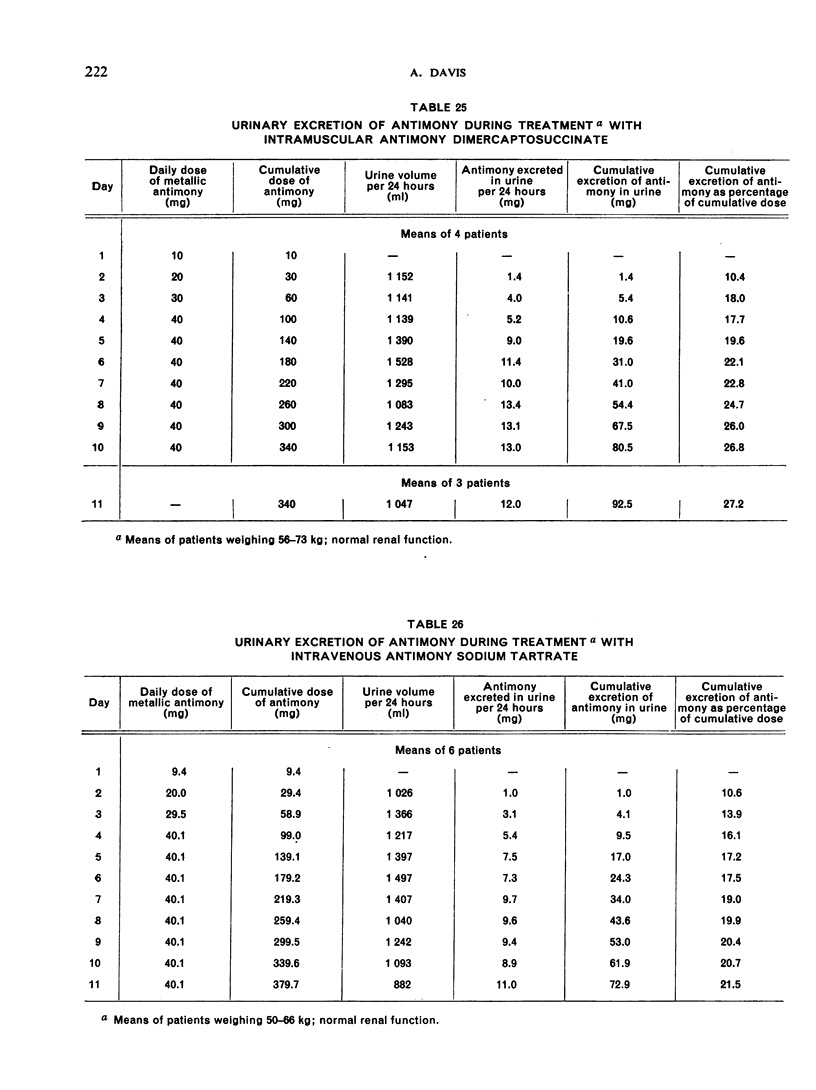
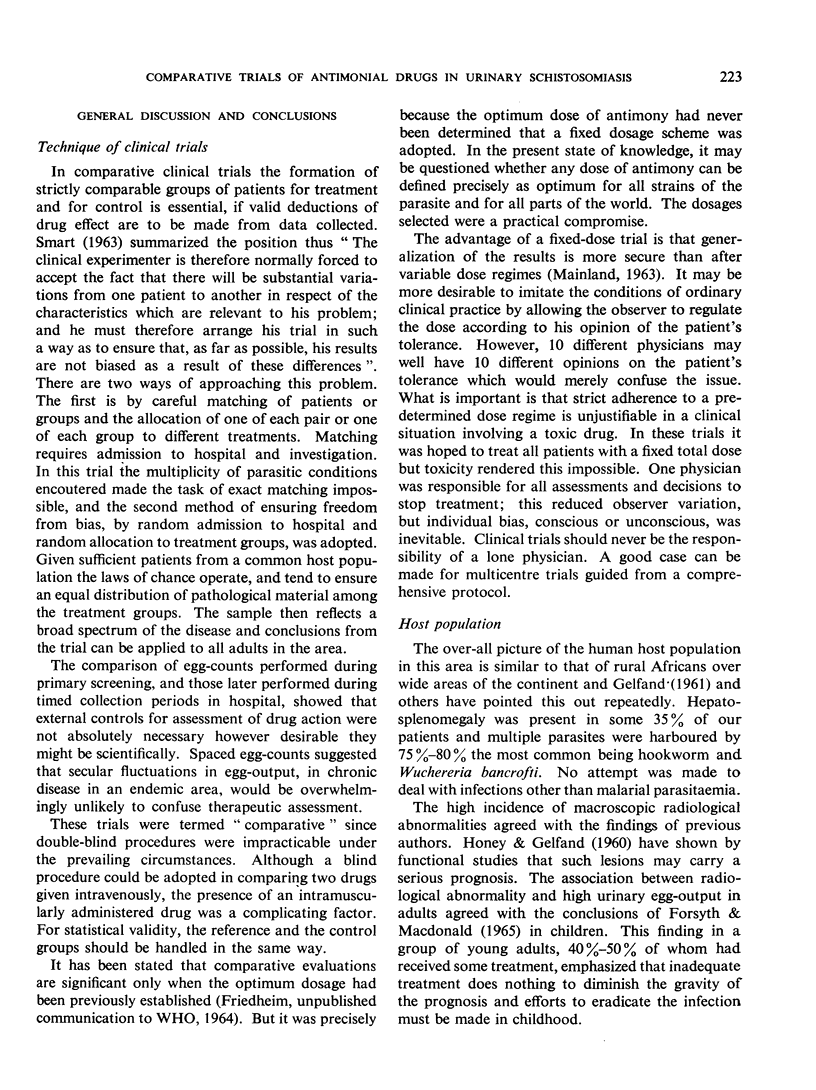
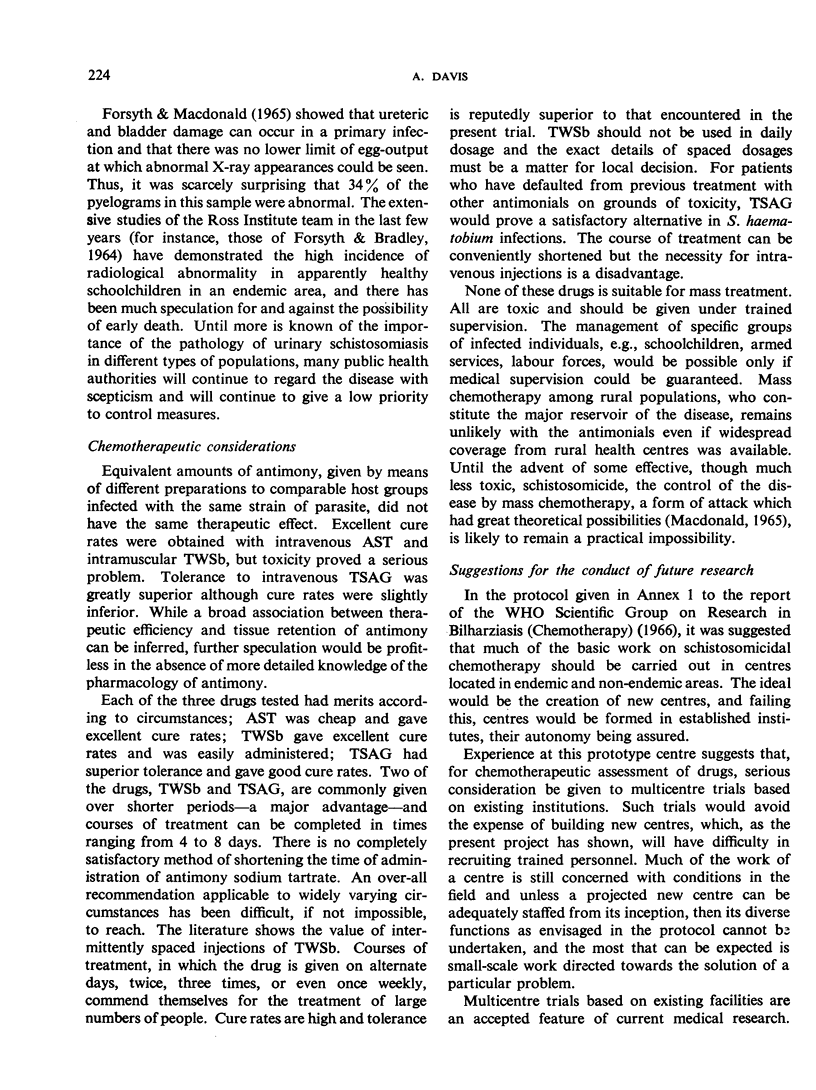
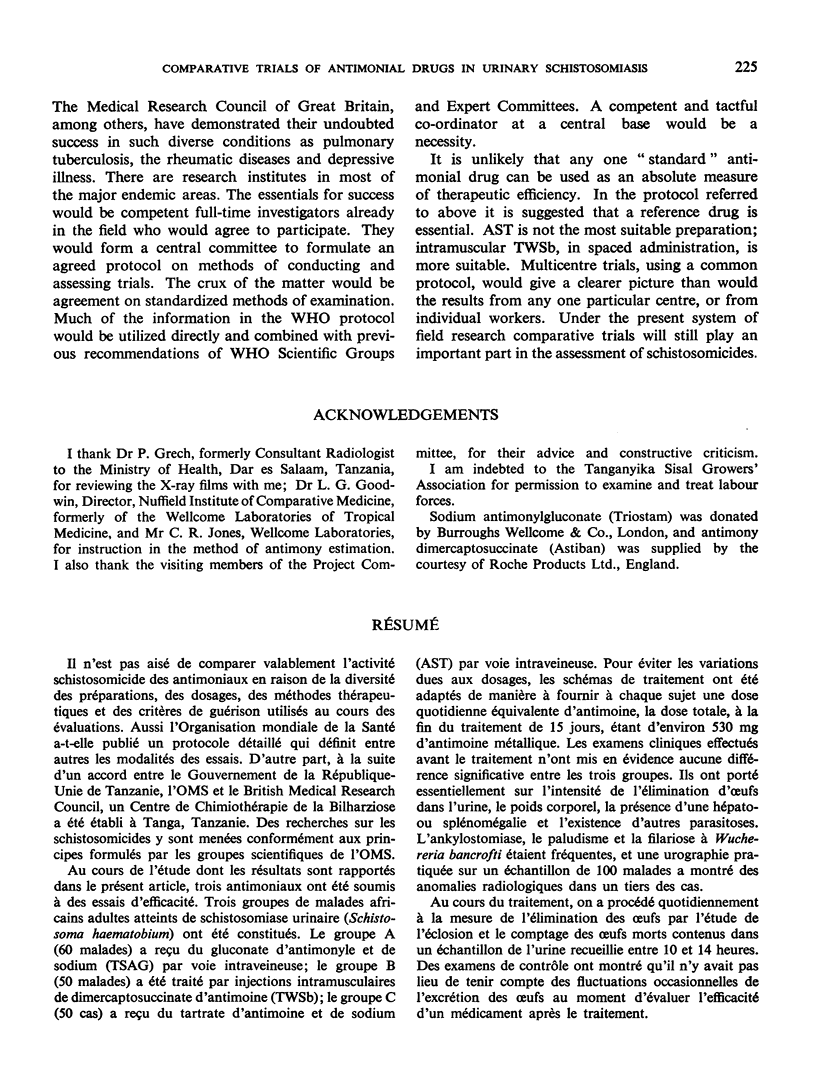
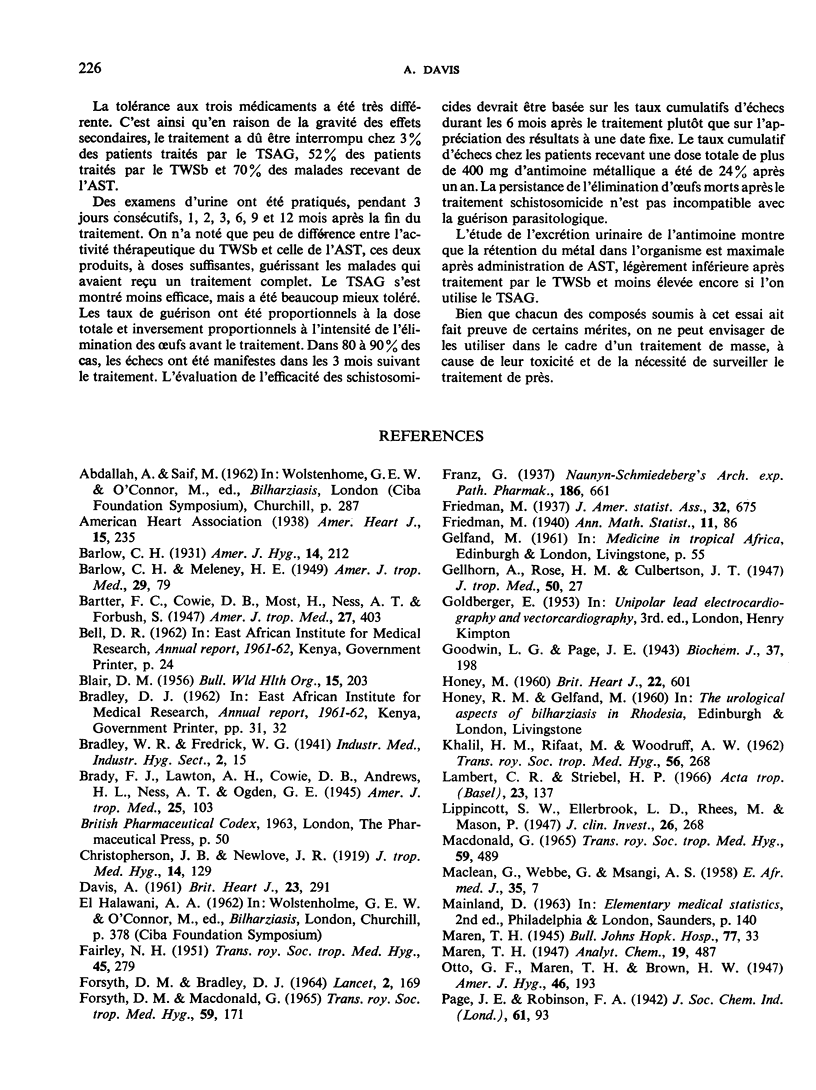
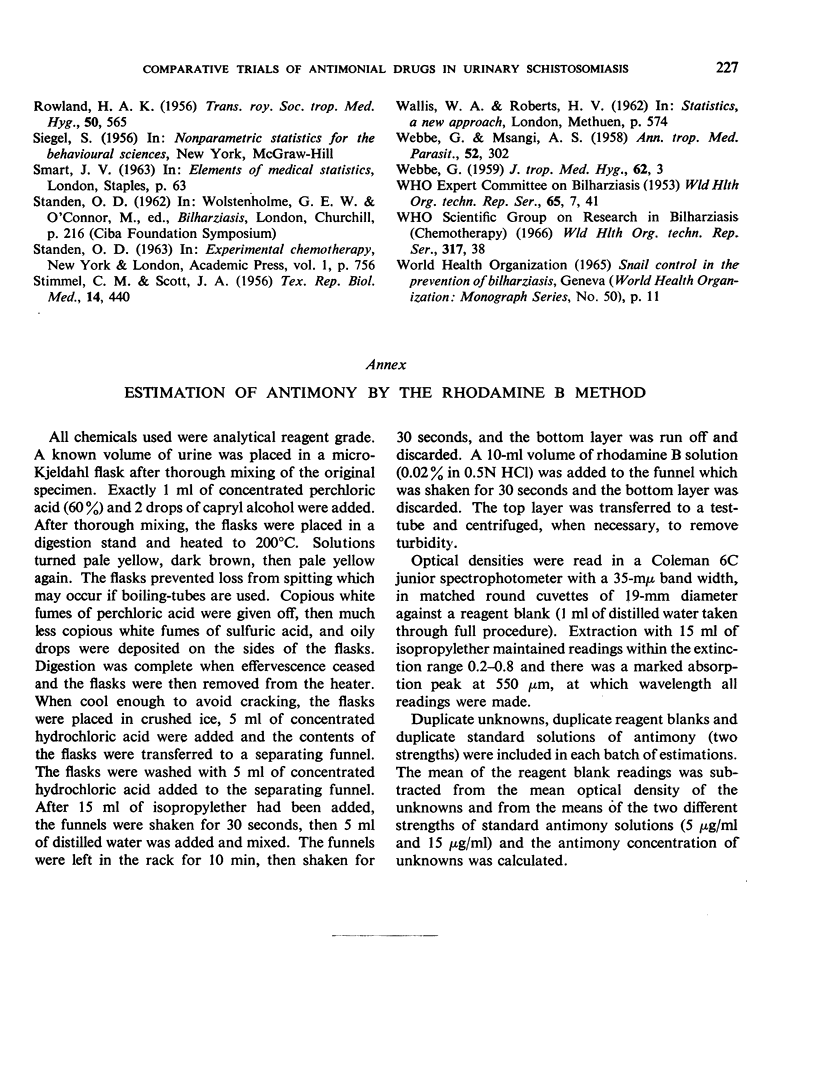
Selected References
These references are in PubMed. This may not be the complete list of references from this article.
- BARLOW C. H., MELENEY H. E. A voluntary infection with Schistosoma haematobium. Am J Trop Med Hyg. 1949 Jan;29(1):79–87. doi: 10.4269/ajtmh.1949.s1-29.79. [DOI] [PubMed] [Google Scholar]
- Crismon J. M., Fuhrman F. A. STUDIES ON GANGRENE FOLLOWING COLD INJURY. V. THE USE OF FLUORESCEIN AS AN INDICATOR OF LOCAL BLOOD FLOW: FLUORESCEIN TESTS IN EXPERIMENTAL FROSTBITE. J Clin Invest. 1947 Mar;26(2):268–276. doi: 10.1172/JCI101804. [DOI] [PMC free article] [PubMed] [Google Scholar]
- DAVIS A. The effect of antimony dimercapto-succinate on the electrocardiogram. Br Heart J. 1961 May;23:291–296. doi: 10.1136/hrt.23.3.291. [DOI] [PMC free article] [PubMed] [Google Scholar]
- FAIRLEY N. H. Schistosomiasis and some of its problems. Trans R Soc Trop Med Hyg. 1951 Dec;45(3):279–306. doi: 10.1016/s0035-9203(51)80001-4. [DOI] [PubMed] [Google Scholar]
- FORSYTH D. M., BRADLEY D. J. IRREVERSIBLE DAMAGE BY SCHISTOSOMA HAEMATOBIUM IN SCHOOLCHILDREN. Lancet. 1964 Jul 25;2(7352):169–171. doi: 10.1016/s0140-6736(64)90230-2. [DOI] [PubMed] [Google Scholar]
- FORSYTH D. M., MACDONALD G. UROLOGICAL COMPLICATIONS OF ENDEMIC SCHISTOSOMIASIS IN SCHOOL-CHILDREN. I. USAGARA SCHOOL. Trans R Soc Trop Med Hyg. 1965 Mar;59:171–178. doi: 10.1016/0035-9203(65)90078-7. [DOI] [PubMed] [Google Scholar]
- Goodwin L. G., Page J. E. A study of the excretion of organic antimonials using a polarographic procedure. Biochem J. 1943 Jul;37(2):198–209. doi: 10.1042/bj0370198. [DOI] [PMC free article] [PubMed] [Google Scholar]
- HONEY M. The effects of sodium antimony tartrate on the myocardium. Br Heart J. 1960 Nov;22:601–616. doi: 10.1136/hrt.22.5.601. [DOI] [PMC free article] [PubMed] [Google Scholar]
- Lambert C. R., Striebel H., Stauffer P. Le devenir et la signification des oeufs morts de Schistosoma mansoni dans la paroi intestinale de la souris. Acta Trop. 1966;23(2):137–145. [PubMed] [Google Scholar]
- MACLEAN G., WEBBE G., MSANGI A. S. A report on a bilharzia and molluscan survey in the Tanga district of Tanganyika. East Afr Med J. 1958 Jan;35(1):7–22. [PubMed] [Google Scholar]
- Macdonald G. The dynamics of helminth infections, with special reference to schistosomes. Trans R Soc Trop Med Hyg. 1965 Sep;59(5):489–506. doi: 10.1016/0035-9203(65)90152-5. [DOI] [PubMed] [Google Scholar]
- ROWLAND H. A. The intensive treatment of urinary schistosomiasis with trivalent sodium antimony gluconate. Trans R Soc Trop Med Hyg. 1956 Nov;50(6):565–575. doi: 10.1016/0035-9203(56)90060-8. [DOI] [PubMed] [Google Scholar]
- SCOTT J. A., STIMMEL C. M. The regularity of egg output of Schistosoma haematobium. Tex Rep Biol Med. 1956;14(4):440–458. [PubMed] [Google Scholar]
- WEBBE G., MSANGI A. S. Observations on three species of Bulinus on the east coast of Africa. Ann Trop Med Parasitol. 1958 Oct;52(3):302–314. doi: 10.1080/00034983.1958.11685870. [DOI] [PubMed] [Google Scholar]



